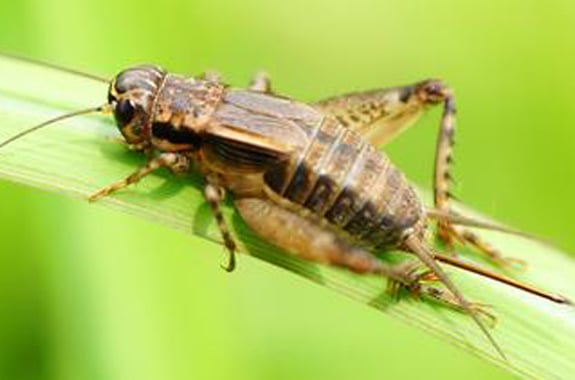While some people can’t even bring themselves to touch a cricket, others are jumping on the trend of eating crickets and other insects. Entomophagy, the practice of eating insects, isn’t new to society. It’s been a practice in many cultures for decades. However, entomophagy has grown in the U.S. the past couple of years. Crickets, grasshoppers, and tarantulas are now considered edible insects for everyone to enjoy…except those with allergies.
As with any food, insects that you consume can cause an allergic reaction. There have been increased reports of crickets causing anaphylaxis. Dr. Morris Nejat, one of our allergists at NY Allergy & Sinus Centers, has recently seen a patient with this condition. Cricket allergy is a growing concern and should be further evaluated.
Consuming Edible Insects
There are many ways to consume crickets and other insects. An online supermarket, Edible Insects, sells treats containing crickets such as cricket crunch bars and flavored crickets. Since crickets contain almost 70% protein, they are considered a healthy and filling snack.
There are also restaurants all over the world that include edible insects in their menu. A New York City restaurant, Toloache, features Oaxacan style dried grasshoppers in their JM Chapulines. It is one of their most popular dishes and proves that the market for edible insects is increasing. This also means that more allergies to the insects are arising.
What Causes Cricket Allergy?
Cricket allergy is caused by the protein in crickets. The insect shares some of the same protein as some shellfish such as shrimp and lobster. This means that if you suffer from a shellfish allergy, there is a high chance that you will be allergic to crickets. The more you are exposed to crickets, the more likely you are to develop the allergy.
There may also be a connection between dust mites and crickets. Dust mites share some of the same allergens as crustaceans. Similar reactions such as wheezing and contact dermatitis have been reported by people exposed to crickets. So if you suffer from multiple allergies, it may not be a good idea to eat that bug.
Should I Avoid Eating Crickets and Other Insects?
For the average person, eating crickets is completely fine. There’s less risk of developing a foodborne illness when eating insects. However, individuals who suffer from severe food or environmental allergies must be cautious when introducing crickets to their diet. We suggest eating crickets in a clinical setting first before trying them at home. This will provide a safe way to determine if you’re allergic to insects.
Our board-certified allergists are trained to diagnose and treat new allergies. While cricket allergy isn’t a common allergy yet, it is developing more each year.
Meet The Physician Collaborator
Dr. Nejat is an allergist and immunologist that specializes in hay fever, asthma, sinusitis, and food allergies. He is board certified with the American Board of Allergy and Immunology and the American Board of Pediatrics. You can schedule an appointment with Dr. Nejat by calling 212-686-6321 or by visiting one of our locations.

